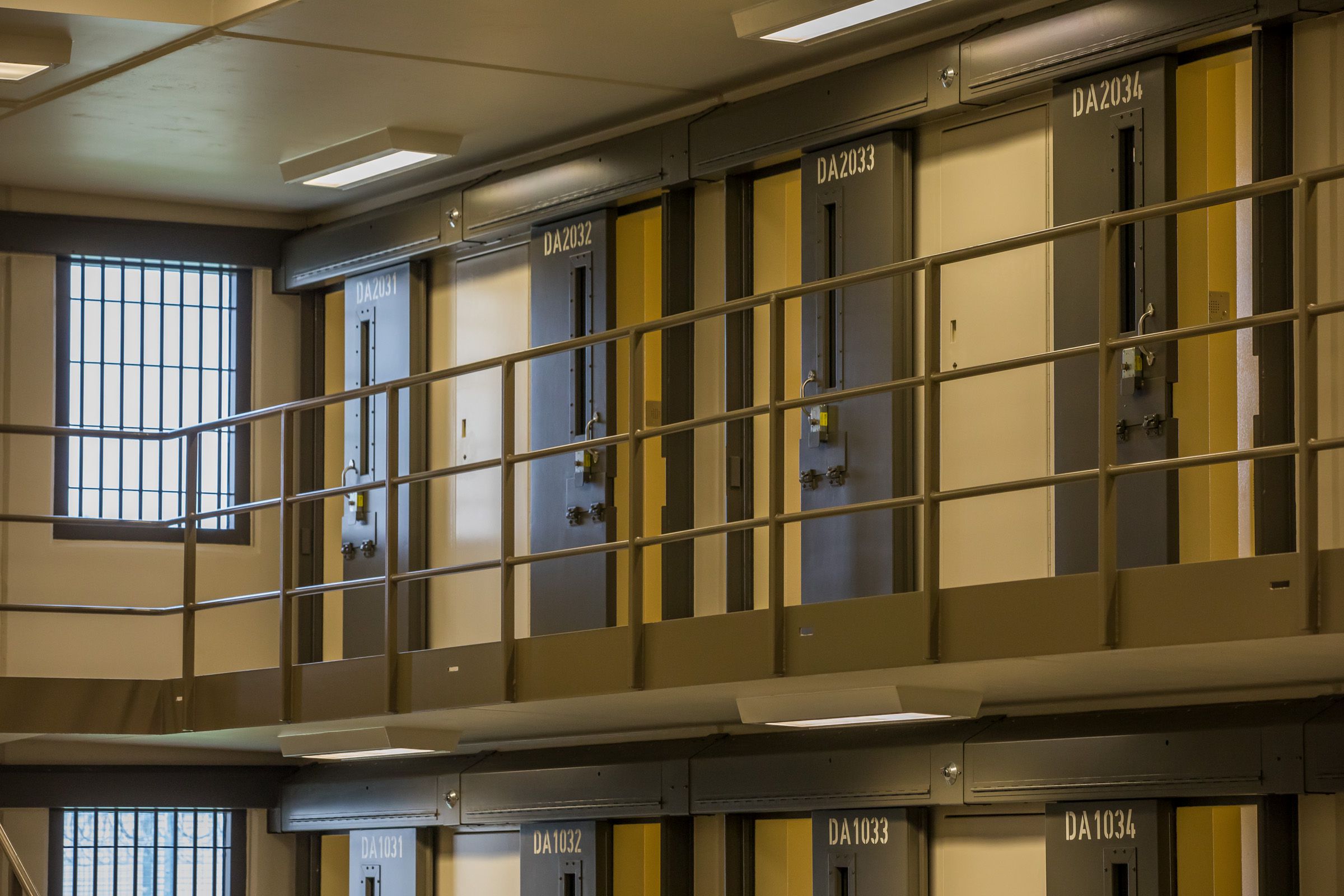-
play_arrow
WURD Radio
Costs for Pa. prison system are soaring despite facility closures, putting officials in the hot seat

Danielle Ohl of Spotlight PA
Photo credit: Commonwealth Media Services
Spotlight PA is an independent, nonpartisan, and nonprofit newsroom producing investigative and public-service journalism that holds power to account and drives positive change in Pennsylvania. Sign up for our free newsletters.
HARRISBURG — The Pennsylvania Department of Corrections wants more than $300 million in next year’s budget despite a declining population of incarcerated people and the recent closure of two facilities, sparking tough questions from lawmakers.
Democratic Gov. Josh Shapiro’s budget proposal to the state legislature included more than $200 million in additional funding for the department, which would bring the agency’s full request to roughly $3.3 billion. The department is also asking the legislature to approve an additional $100 million in supplemental funds to cover spending beyond last year’s projections.
Officials contend the increase is needed to address both additional federal requirements and dwindling federal funds; obligations to employee union contracts; and overtime driven by staffing vacancies.
But lawmakers questioned how such a substantial increase was needed after the prison system promised savings following the closure of two facilities in 2017 and 2020. State Sen. Lisa Baker (R., Luzerne) noted the request was twice what taxpayers were supposed to save.
“What happened with the cost savings that we expected from those closures?” Baker asked during a February appropriations meeting. “As we look at the cost to carry forward, it doesn’t seem like saving. Taxpayers are going to ask how did we propose $120 million in closures and we’re looking at a double increase currently.”
The simple answer? It costs more to do the same thing.
The corrections department oversees nearly 38,000 incarcerated individuals across 24 prisons and employs more than 17,000 people in both the prison and parole systems. Its budget includes the cost of running the prisons, which is its largest expense, and operating the state’s parole and pardons boards, the Office of Victim Advocate, and the parole system.
About 85% of the corrections budget increase is due to cost-to-carry increases, Harry told legislators at the hearing, or the cost to continue the same level of services the department currently provides.
State prisons are the biggest cost driver, both in overspending last year and additional spending next year. The agency’s proposed budget includes a $169 million increase for the prisons alone, funds that will go toward growing expenses like utilities, food and facility maintenance, and contract-mandated pay increases for the unionized staff and security officers.
The agency also wants the legislature to approve $53 million to cover similar contract-mandated increases during the prior fiscal year.
Medically assisted treatment
The department also saw significant increases in the cost of providing medication-assisted treatment, or MAT, to people who are incarcerated and suffering from opioid use disorder.
MAT uses a combination of counseling, behavioral therapy, and pharmaceutical drugs to help people recover from opioid addiction. In April 2022, the U.S. Department of Justice ruled that opioid use disorder qualifies as a disability under federal law, which required the state prison system to grow its decade-old MAT program to provide proper accommodation.
Despite the mandate, available federal grants don’t cover the full cost of Pennsylvania’s expanded program, which went $10.5 million over budget. Medication and treatment will cost $30 million in the next fiscal year.
In Pennsylvania state prisons, there about 1,800 people receive this type of treatment, Harry said, but the department expects that number to grow as some county jails begin to provide their own therapies to people who are incarcerated before trial.
Staffing issues
Years after the height of the coronavirus pandemic, staff vacancies still troublePennsylvania’s prisons, and caused overtime costs to exceed last year’s projections by $30 million.
Across the prisons, about 8% of positions were unfilled as of April, including 779 corrections officer vacancies.
“Last year, in 2023, the number I see is that there were 40 employees in your department that had received over $100,000 in overtime pay,” said state Sen. Greg Rothman (R., Perry). “Is that acceptable?”
Harry told legislators the department is focused on recruiting and retaining employees to reduce the number of overtime shifts needed to properly staff the prisons. The department has expanded its hiring beyond state borders and to people as young as 18 years old, though only 16 corrections officers under the age of 21 have been hired so far.
At the same time, the population is smaller than it was before the pandemic, which saw numbers dwindle from more than 45,000 people in 2020 to about 36,000 people in 2022.
The population has slowly increased over the past two years, and the agency expects it to plateau around 40,000 people.
But the department does not necessarily adjust staffing levels in lockstep with fluctuations in the incarcerated population because staffing needs vary by institution and account for the physical layout of the prison, the programs offered, and more, said department spokesperson Maria Bivens.
“In addition, the DOC conducts regular staffing surveys at its facilities to ensure effective allocation of personnel,” she said.
Unplanned absences still drive corrections officers to volunteer for additional shifts even as the department has lowered its mandatory overtime rate. Corrections officers are also required to staff hospital posts when an incarcerated person is being treated at a medical facility outside the prison, Bivens said.
“And while the prison population is down from the highs of several years ago, the remaining population is older, and requires more medical care, necessitating additional staff,” she said.
BEFORE YOU GO… If you learned something from this article, pay it forward and contribute to Spotlight PA at spotlightpa.org/donate. Spotlight PA is funded by foundations and readers like you who are committed to accountability journalism that gets results.
Written by: Associated Contributor
Similar posts
The Defenders: Why Black Americans Are the Backbone of American Democracy
todayOctober 1, 2025 6
Featured post
Latest posts

This Week on WURD: Faith, Oscars, monument removal & global shifts

Refrigerator King: Our Leader’s Legacy in a Fractured Democracy

This Week on WURD: Media accountability in politics, the holiday stress on mothers, environmental justice in Chester, and the legacies of Jimmy Jam and Laiya St. Clair

This week on WURD: The fight over Warner Bros., equitable access to AI tools, the toll of mass incarceration

This week on WURD: $5 million URL Media grant, tensions in Venezuela, Black farmers and the government shutdown
Current show
Upcoming shows

Conversations with the Commissioners
8:00 am - 9:00 am
Dr. Paul’s Holistic Health Hour
9:00 am - 10:00 am

Saturdays with City Council
10:00 am - 11:00 am
The Murray Report
11:00 am - 1:00 pm
Radio Courtroom
1:00 pm - 3:00 pm
WURD Radio LLC © 2012-2021. All rights reserved.






Post comments (0)